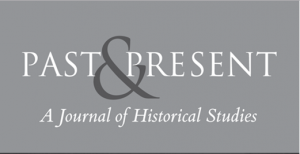by the Past & Present editorial team
Later this year Past & Present will publish “Diets, Hunger and Living Standards during the British industrial revolution” by Prof. Emma Griffin (UEA, Norwich).
The article returns to, and seeks to re-frame and focus; the classic social history debates around the impact of early industrialisation upon the living standards of the poorest members of British society.
Prof. Griffin recently presented a BBC Radio Four programme, broadcast on International Women’s Day, Mind the Gender Pay Gap. In the programme she explored how gendered assumptions and power imbalances structured the organisation of work, affected the division of labour’s share of the proceeds of industrialisation, during the 18th and 19th Centuries. Through doing this she demonstrates that:
“…we can only make sense of the gender pay gap by taking a historical perspective. Beginning in the 15th century, [Prof. Griffin] explores how work has always been divided along gender lines. Then during the industrial revolution, when women started to enter the workplace in record numbers, women’s work was typically defined by lower wages, in comparison to men’s. [Prof. Griffin shows] how the new industrial employers maintained the gender pay gap in the burgeoning cotton mills.”
Using cutting edge social history to “argue that these very deep-rooted assumptions around paid and unpaid work powerfully influence the experiences of women in the workplace today. By uncovering this history, she sheds fresh light on one of the most contested issues of our own times: the politics of pay.”
Readers in the UK can listen to Prof. Griffin and her co-contributors on BBC iplayer.
Readers everywhere in the world can read Prof. Griffin’s open access article “Diets, Hunger and Living Standards during the British industrial revolution” via our publisher OUP Academic’s advance access section.

